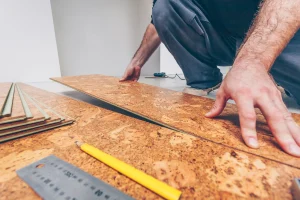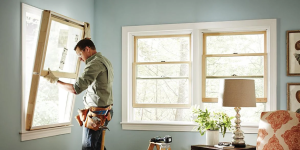Post-Closing Essentials: A Smart New Homeowner Checklist

Becoming a homeowner is a major milestone worth celebrating. But once the final documents are signed and the keys are handed over, your journey has only just begun. The post-closing phase is critical to ensuring a smooth transition and setting a strong foundation for the years ahead. Whether it’s organizing legal documents, updating security measures, or preparing your home for daily life, here’s a smart checklist every new homeowner checklist should follow after closing.
Secure and Organize Important Documents
Immediately after closing, you’ll receive a large stack of documents, including your deed, closing disclosure, mortgage agreement, and insurance policies. Store these in a secure, fireproof safe or digital cloud storage with backup access. You’ll likely need these documents for tax purposes or future transactions, so having them well-organized is essential.
Change the Locks and Update Security
For peace of mind, replace all exterior locks and consider installing a new security system or smart lock system. You don’t know how many spare keys may exist from previous owners, contractors, or real estate agents. It’s also wise to reset garage door codes and update any digital access panels if your home has them.
Set Up Utilities and Services
Make sure all essential utilities — electricity, water, gas, internet, and trash collection — are active and in your name. Some companies allow you to schedule transfers in advance, but double-check everything once you move in to avoid disruptions. Consider setting up automated payments for added convenience.
Update Your Address
Notify important parties of your address change. Start with your bank, employer, insurance providers, and government agencies like the postal service and motor vehicle department. Updating your address ensures you receive bills, tax documents, and other critical correspondence without delay.
Schedule a Deep Clean and Maintenance Review
Before settling in, consider hiring a professional cleaning service to perform a deep clean of your new home. At the same time, conduct a detailed walkthrough to inspect plumbing, HVAC systems, roofing, and electrical panels. Scheduling a maintenance check with professionals can help you avoid costly surprises down the road.
Familiarize Yourself with the Home Systems
Take the time to learn the layout of your circuit breaker, water shut-off valve, and gas shut-off points. Knowing how to operate these systems can save time and prevent damage in the event of an emergency. It’s also helpful to locate warranty information for appliances and fixtures.
Meet the Neighbors and Learn Local Guidelines
Getting to know your neighbors builds a sense of community and can offer helpful insights about the neighborhood. Additionally, review local ordinances, HOA rules (if applicable), and garbage collection schedules to stay compliant and avoid fines.
Start Budgeting for Ongoing Expenses
Homeownership comes with new responsibilities — and new costs. Create a monthly budget that accounts for property taxes, insurance, routine maintenance, and unexpected repairs. Setting aside an emergency home fund will provide financial security in the long run.
Conclusion
Owning a home is both rewarding and demanding. By following this post-closing checklist, new homeowners can confidently transition into their property with organization, safety, and preparedness in mind. With thoughtful planning and proactive steps, you’ll be well on your way to enjoying the comfort and stability of your new home.







